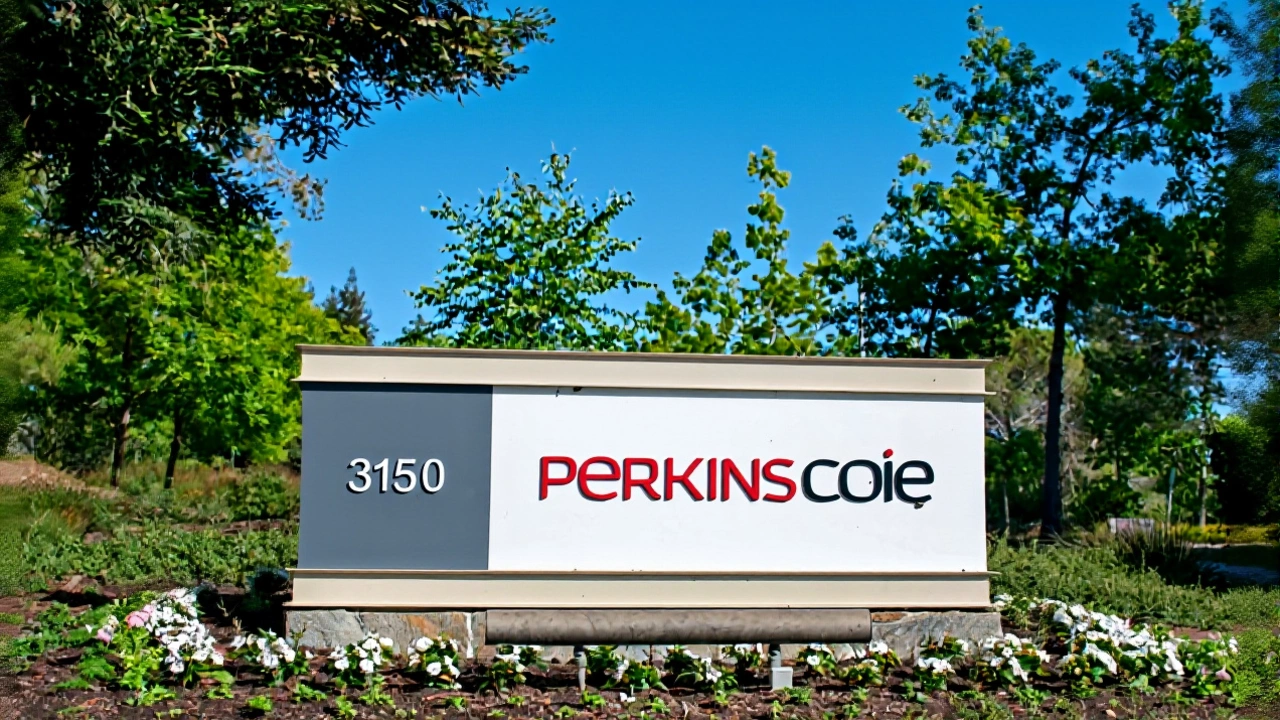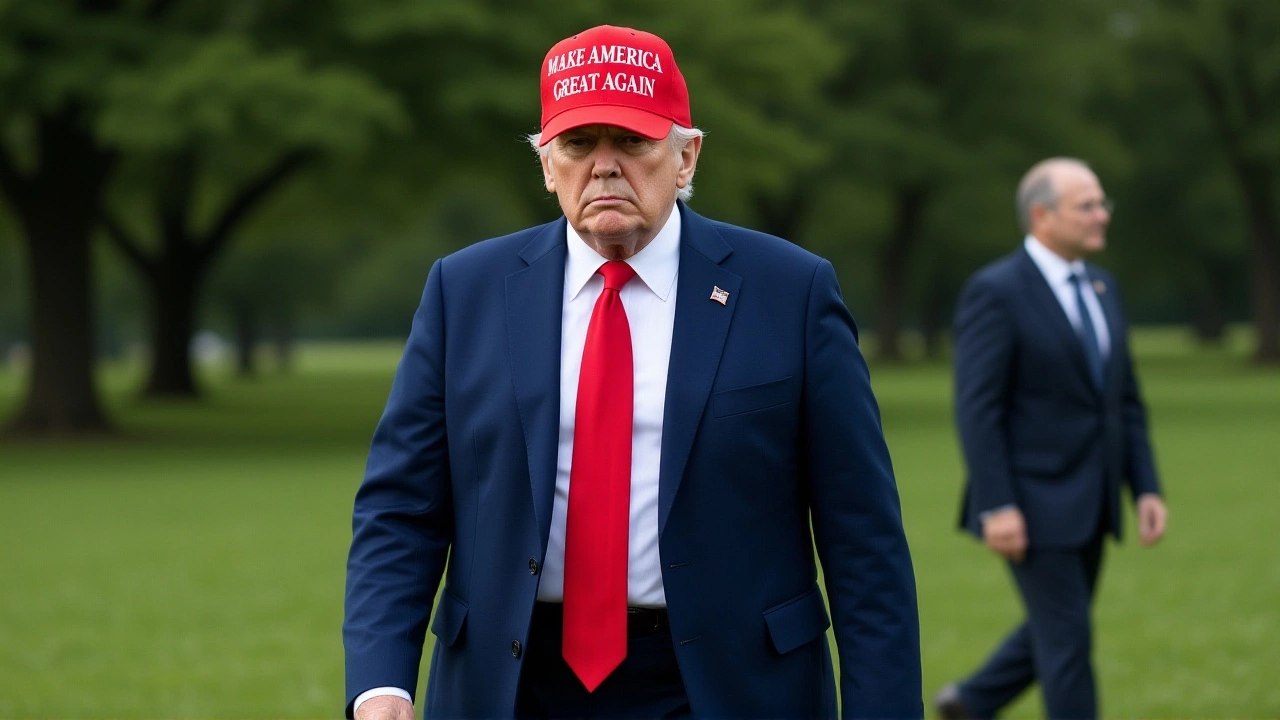Perkins Coie Wins Landmark Ruling Against Trump EO Targeting DEI Practices; Government Appeals

On May 2, 2025, Perkins Coie LLP scored a historic legal victory when U.S. District Judge Beryl A. Howell granted the firm’s motion for summary judgment in full, striking down Executive Order 14230Washington D.C. as an unconstitutional attack on free speech and due process. The order, signed by President Donald J. Trump on March 6, 2025, had ordered all federal agencies to cut ties with the law firm, barred its employees from federal buildings, and accused it of racial discrimination and working with activist donor George Soros to undermine election laws. But Judge Howell didn’t just block the order—she called it a dangerous precedent. "The government cannot punish a law firm for representing unpopular clients or advocating for legal reforms," she wrote. "That’s not governance. That’s retaliation."
How a Law Firm Became a Political Target
Perkins Coie, a 150-year-old Seattle-based firm with deep ties to Democratic politics and high-profile clients like the Biden campaign and voting rights groups, had long been a target of conservative criticism. But the March 6 executive order was unprecedented. For the first time in modern U.S. history, a president singled out a private law firm by name—not for misconduct, but for the nature of its legal work. The order claimed Perkins Coie "engaged in dishonest and dangerous activity" and "racially discriminates against its own attorneys and staff." No evidence was presented. No investigation had been completed. Yet the White House demanded immediate contract terminations. "It wasn’t about performance," said a senior Perkins Coie partner, speaking anonymously. "It was about silencing us. We’ve represented Native tribes challenging voter ID laws. We’ve defended transgender students. We’ve advised campaign finance reformers. That’s our job. And now the president wants to blacklist us for doing it?"The Legal Counterattack
Five days after the order was signed, Perkins Coie filed suit in the District of Columbia, asking for an emergency temporary restraining order. Judge Howell, a Clinton appointee known for her sharp constitutional analysis, held a hearing on March 12—and granted the TRO the same day. That was rare. Even rarer? She extended it through final judgment on April 25. Then, on May 2, she issued a 78-page ruling that dismantled the government’s case point by point. She found the EO violated the First Amendment by punishing protected speech and viewpoint discrimination. The Fifth Amendment, she ruled, was breached because the firm was deprived of property (contracts) without due process. And the Sixth Amendment? That was the kicker. The order interfered with clients’ right to choose counsel. "If the government can punish a law firm for representing a client, who’s next?" she asked. "A firm that defends immigrants? A firm that sues the EPA? The chilling effect is immediate and terrifying."Government Response and Broader Implications
The Department of Justice, under Attorney General Pam Bondi, filed an appeal to the U.S. Court of Appeals for the District of Columbia Circuit on June 30, 2025. Appellant and appellee briefs are due August 18. Legal analysts say the D.C. Circuit—often seen as the nation’s second most powerful court—is likely to uphold Howell’s ruling. "This isn’t just about Perkins Coie," said constitutional scholar Dr. Elena Ramirez of Georgetown Law. "It’s about whether the executive branch can weaponize contracting power to silence dissent. If this stands, no law firm is safe." The case is also part of a wider legal pushback against Trump’s broader DEI crackdown. On February 3, 2025, the city of Baltimore and three civil rights groups sued in Maryland over similar executive orders targeting federal DEIA programs. That case, led by Democracy Forward and Asian Americans Advancing Justice – AAJC, argued the orders were vague, overbroad, and violated free speech. Judge Leon, who heard that case, had already rejected the government’s claims of lack of standing and political question doctrine.
What’s at Stake Beyond the Courtroom
The fallout extends far beyond federal contracts. Federal agencies have already begun pulling back from Perkins Coie’s clients. A nonprofit that received a $2.3 million grant to expand voter access in Georgia paused its work, fearing its funding could be cut if it was linked to the firm. A tech startup that hired Perkins Coie for a data privacy case quietly switched firms—despite the firm’s flawless record. "It’s not just about money," said Maria Chen, a junior associate at Perkins Coie who works on voting rights. "It’s about morale. We wake up wondering if our next email will be flagged by some algorithm because we used the word ‘equity.’" Judge Howell’s ruling explicitly clarified that the injunction does not prevent investigations into other firms. But it does prohibit the president from directing agencies to target Perkins Coie based on its speech or representation. "The government can’t pick winners and losers in the legal profession," she wrote. "That’s not justice. That’s politics."What Happens Next?
The appeal to the D.C. Circuit will likely be fast-tracked. Oral arguments could come as early as October. If upheld, this ruling sets a powerful precedent: law firms can’t be punished for the clients they represent, even if those clients are politically controversial. It also reinforces the principle that constitutional rights don’t vanish just because you’re a private entity. Meanwhile, Perkins Coie has quietly resumed work on several federal contracts. Its employees are back in federal buildings. But the firm’s leadership says the battle isn’t over. "We won the battle," said Managing Partner Robert H. Lee in a June 30 statement. "But the war for the soul of our legal system? That’s just beginning."
Background: The DEI Crackdown Timeline
- February 3, 2025: Baltimore and civil rights groups sue over federal DEIA elimination orders. - March 6, 2025: President Trump signs EO 14230 targeting Perkins Coie. - March 11, 2025: Perkins Coie files lawsuit and TRO request. - March 12, 2025: Judge Howell grants emergency TRO. - April 25, 2025: Injunction extended to final judgment. - May 2, 2025: Summary judgment granted; EO struck down. - May 20, 2025: Clarifying order issued—no investigations permitted. - June 30, 2025: DOJ files appeal to D.C. Circuit.Frequently Asked Questions
How does this ruling affect other law firms?
The ruling directly protects Perkins Coie, but its legal reasoning applies broadly. If the D.C. Circuit upholds it, no law firm can be targeted by executive order for representing unpopular clients or advocating for legal reforms. This sets a precedent that could shield firms working on immigration, voting rights, or environmental cases from similar retaliation.
What led to the government targeting Perkins Coie specifically?
Perkins Coie represented the Biden campaign, advised voting rights groups, and worked with donors like George Soros on election integrity efforts. The Trump administration viewed these activities as threats to its political agenda. The EO cited no misconduct—only the firm’s political associations and legal work, which the court found insufficient grounds for punishment.
Why is the Sixth Amendment relevant here?
The Sixth Amendment guarantees the right to counsel. Judge Howell ruled that by pressuring federal agencies to cut ties with Perkins Coie, the government interfered with clients’ ability to hire the lawyer of their choice. That’s not just a contract issue—it’s a constitutional one. If the government can block access to a firm, it undermines the entire legal system’s integrity.
What’s the next legal step?
The Department of Justice filed an appeal to the D.C. Circuit Court on June 30, 2025. Briefs are due August 18, with oral arguments likely in October. If the appellate court upholds Judge Howell’s decision, the case could eventually reach the Supreme Court—making it one of the most consequential First Amendment cases in decades.
Does this ruling protect other DEI-related activities?
Not directly. But the logic applies: if the government can’t punish a law firm for its speech, it can’t punish agencies, nonprofits, or universities for DEIA programs either. The court’s emphasis on vague, viewpoint-based targeting undermines the legal foundation of similar executive orders, giving other plaintiffs stronger footing in pending cases.
What’s the political significance of this case?
This is the first time a court has blocked a presidential order targeting a private law firm by name. It signals that even in a polarized climate, the judiciary remains a check on executive overreach. For legal professionals, it’s a reminder: the right to counsel, and the freedom to advocate, aren’t political privileges—they’re constitutional rights.
